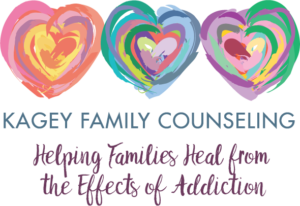Have you been searching for a way to get your loved one into treatment for alcohol and/or drug addiction? Have you tried everything to open the door to recovery, but it’s still locked from the inside?
It may be time to do an intervention with Linda Kagey, LCDC, Love First Interventionist.
This is the second article in a mini-series we’re doing about Interventions. In the previous blog, we talked about what a Clinical Intervention Specialist is and why it’s important to use one if you’re planning to do an intervention. We also revealed that Linda is a Love First Interventionist and explained a little about what that means. Click here if you would like to review that article now. It’s a quick read!
Today, we wanted to give you a deeper look into how Linda approaches interventions so you’ll know if working with her may be the right solution for you and your family.
First, we want you to be familiar with a couple terms that we use throughout the process.
- Your Recovery Team is anyone who will be involved in the Intervention. It can include family members, friends, coworkers – whomever is most relevant and appropriate to assist in the intervention process. Linda will guide you in deciding who should be included.
- Your Loved One is the person you are doing the intervention for.
- Treatment – part of the clinical assessment will entail deciding which level of treatment your Loved One will benefit from most. These options include:
- Detoxification
- Residential Treatment
- Partial Hospitalization Program
- Intensive Outpatient Program
- Outpatient Therapy or a combination of any/all of these levels.
Now that you have some of the language down, let’s move on to talking about the essence of Linda’s intervention process.
Creating a Pathway to Yes!
Doing an intervention doesn’t have to be a tense and scary experience for you or your Loved One. Linda uses a compassionate and comprehensive approach to the entire intervention process – she does not do a one-time Intervention (meeting) and then send you on your way. Linda believes that every individual and family is different and that it’s important for her to work with you both before, during, and after the Intervention.
During the intervention process, you will be provided with practical guidance, a loving plan of action, and supportive follow-up to bring you a sense of grounding to what is an extremely challenging situation. Collectively, you will come up with a substance abuse intervention plan everyone feels will be best received by your Loved one. Unlike other forms of interventions which can feel punitive, Linda uses the power of love and concern to break through denial so your Loved One will feel supported in getting the help they need.
Help for Your Whole Recovery Team, Not Just Your Loved One
One of the goals throughout the intervention process is to identify and change the established patterns of behavior between members of the Recovery Team and your Loved One that have allowed their addiction to progress. Linda will provide you with the training, expertise, and advice needed to learn how to do things differently in order to take care of yourself and to encourage recovery for your Loved One.
Linda often describes this part of the process by asking your Recovery Team to think about a dance metaphor.
Let’s say each of you has been dance partners with your Loved One. If you have been dancing the Waltz together, you’re both familiar with how to do the steps, you know the rhythm, and you know which one of you is leading or following. You and your Loved One’s Waltz is smooth and you drift along with the music without having to think.
But if YOU decide to start dancing the Two-Step in the middle of the song, your Loved One will have to do something different. They can’t continue dancing the Waltz with you if you’ve started doing the Two Step. You have changed your dance steps and your rhythm, and as your Loved One continues to dance with you, they must change theirs too. They will have to do something different because you have done something different. Your old way of dancing together is no longer an option.
The point of the metaphor is that when YOU shift the dynamics of your relationship with your Loved One, they will have to shift too. We hope that will be in the direction of recovery from their substance abuse, but there is never a guarantee. However, positive change is much more likely to happen as each of your Recovery Team members works on adjusting their patterns of relating to your Loved One and his/her addiction.
Six Months Follow-Up Support
Sometimes your Loved One may choose not to go to treatment. Whether or not this is the case, Linda will continue to help and guide your Recovery Team in shifting the ways you relate to your Loved One for six months post intervention. This comprehensive support can make all the difference!
If you’re considering doing an intervention for a Loved One and this is the kind of support you are looking for, please complete contact form by clicking this link Contact Us | Kagey Family Counseling. You can also call us as 832-928-0211 for a free 15-minute phone consultation. We’re happy to discuss your specific needs and answer any questions you have.


